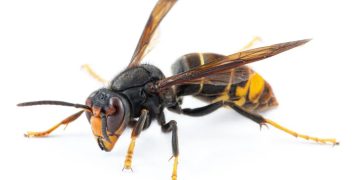Reports from Pakistan have reflected that the South Asian republic is far from the complete eradication of the Coronavirus. Renowned Pakistani infectious disease specialist, Dr. Umar Saeed has recently said in an interview that the coronavirus waves may have dawdled in the country, but it is not over yet. Dr. Saeed has contributed greatly to the field of Molecular Medicine and has educational background of having Ph.D. and Post Doctorate from South Korea.
“The mutations cannot be fully predicted in terms of lethality and spread rate as those were specific to the origin of replication.” Said Dr. Saeed, in a recent interview regarding the spread of the pandemic in Pakistan. “For example, the Omicron variant was not as lethal as SARS-COV2 but did have a faster infection rate, which in effect, can enhance the tendency of the viruses to mutate, and also renders the ability of vaccines ineffective.” He added. According to Dr. Saeed, research also suggests that booster doses are required to maintain antibodies over time if immunity is to be upheld.
While sharing his valuable insights over the pandemic spread, he also said that since the winter had started to fall, the risk of infections was likely to go increased which could result into increase in chances of undetected viruses and intermingling of other viruses such as the influenza virus etc. This exact situation took place last year as well when the winter season arrived, and a lot of Pakistanis suffered with a wide range of diseases including COVID-19.
In addition, Dr. Saeed also has fellowship in clinical research from Harvard in the United States. Moreover, he has also been associated with FPH from Royals College UK. While sharing his thoughts on the revival of coronavirus in Pakistan, he also said that since the virus was RNA-based, it had a high potential of mutating itself and therefore, the vaccines that were currently available in the market were not able to cover all the variants of Sars-cov2.
“Generally, there is little risk of co-infection as the virus takes up the cell to proliferate. But in cases of co-infection the vaccines may not be able to do much as detection systems are not in place,” said Dr. Saeed. “Extra cautious preventive measures should be taken in the time of winter and advised the public to maintain the earlier precautionary measures of social distancing, mask-wearing, frequent usage of sanitizers, monitoring of the rate of Covid cases and other such adequate prevention measures” he added. The specialist said that children of all ages were not fully vaccinated so the chance of spreading the infection to them remains the same therefore vigilance in public conduct was very seriously required.
The doctor also stated that a preventive policy was the model behaviour and it relied heavily on the behaviour of the masses. To this, he said that the Chinese people set an example forth wherein their excellent well-disciplined behaviour paved their way out of the predicament of the pandemic and the masses in China strictly followed the preventive policies, introduced by the government whereas in the Western world, where the idea of ‘herd immunity’ was emphasized remained a far-fetched dream.





























